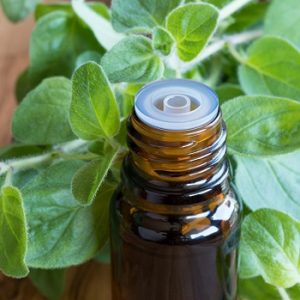
More evidence that low-calorie sweeteners are bad for your health
Studies show that artificial sweeteners can raise the risk of hypertension, metabolic syndrome, type 2 diabetes and heart disease, including stroke.

Natural Health News —If you worry about all the synthetic chemicals used in food preservation and packaging take heart.
A new study has found that essential oils may be able to be used as food preservatives in packaging to help extend the shelf-life of food products.
Essential oils are aromatic oily liquids extracted from different parts of plants (roots, peels, leaves, seeds, fruits, barks) and have been shown to be a good source of antioxidative and antimicrobial substances.
The review of the scientific evidence to date, published in the Journal of Food Science, looked at a range of essential oils noting their ability to fight bacteria and fungi which can spoil food. Amongst the most powerful essential oils were oregano and thyme –both rich in a substance called carvacrol – and rosemary each of which had a broad spectrum of antimicrobial activity against both gram-positive (Staphylococcus aureus and Bacillus subtilis) and gram-negative (Escherichia coli and Klebsiella pneumoniae) bacteria. Coriander was also found to be effective.
More unusually they found antimicrobial activity from Callistemon comboynensis (cliff bottlebrush) essential oil against gram-positive (B. subtilis and S. aureus), gram negative (Proteus vulgaris and Pseudomonas aeruginosa), and the pathogenic fungus Candida albicans.
Not all types of essential oils had such a broad spectrum of action. The researchers found evidence that Pseudomonas putida was resistant to carrot seed and parsley essential oils while E. coli and Salmonella typhimurium were also tolerant to carrot seed, grapefruit, lemon, onion and parsley essential oils.
Preventing spoilage
Essential oils can also act as antioxidants in several different ways, for instance by scavenging free radicals and preventing oxidation (spoilage) and more.
The study authors noted the antioxidant activity of certain active compounds in essential oils such as eugenol in clove, carvacrol in oregano, thymol in thyme, and citronellol in citronella. Among the essential oils from roots, plai essential oil (which comes from the same family as ginger and is grown in Thailand), turmeric and ginger essential oil showed the highest free-radical scavenging activity.
The authors conclude that while there are still some barriers to get over – essential oils could impart unwanted flavour and fragrance to foods – incorporating essential oils into packaging could bring many advantages including improving water vapour barrier properties of protein-based films, increase the strength of the film and resistance to stretching, decrease transparency, and help prevent food spoilage by interacting with the films other properties.
Previous studies have also suggested that essential oils have properties that make them a good alternative to conventional food preserving chemicals.

Please subscribe me to your newsletter mailing list. I have read the
privacy statement